"The Lowveld in South Africa is the best in class for citrus – we believe that just across the border in Mozambique is even better," says Tertius Strauss of Verdant Citrus Massingir. As general manager, he has invested fully in a small village in Gaza Province, to be part of something that's never been done, he says: farming citrus for export on a large scale in Mozambique. "We've applied all of the best practices of South African growers as well as rootstocks from South African nurseries."
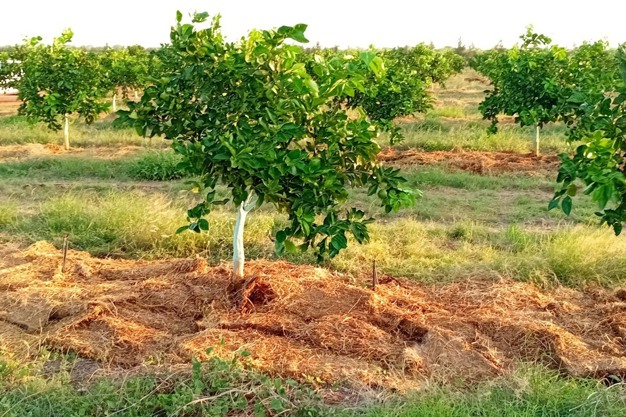 Mulching is of great importance to orchard health, both above-ground and below
Mulching is of great importance to orchard health, both above-ground and below
"Powerpoint business plans are one thing but actual farming reality is another."
He observes that what that industry had learned over decades, they need to get to scale within three years, and the pay-off could be big: they intend to become Mozambique's largest citrus-growing entity. Tertius works alongside his brother JC Strauss, who runs All About Fresh, an Australia-based fruit importer, which was struggling to get sufficient citrus volumes from South African growers. They decided to try their hand at growing citrus (something they'd never done, he remarks) and aim for the earliest yet window for lemons, Valencias, and grapefruit in Southern Africa.
"We were fortunate to connect with Verdant Frontiers, a USA-based investment entity that was looking at expanding its African footprint. Having resilient partners in any project is critical," he adds. "Powerpoint business plans are one thing but actual farming reality is another."
The port of Maputo lies less than 400km to the east of the farm.
"It's close to proof of concept, but the model does indicate that we would be two weeks earlier than the Lowveld, maybe one week earlier than Hoedspruit, and possibly the same time as Alicedale and Tshipise. And we've set it up like that with our rootstocks to push for the early advantage."
After negotiations with the local government of Gaza Province and the local communities of Massingir – tripartite dialogue preceded their every move, he says - the citrus orchards were established in 2020. The first small crop will shortly be taken off this year and commercial volumes are expected by 2026. The plan is taking shape: 440 hectares of lemons, Valencias, and grapefruit, all irrigated from the Massingir Dam two kilometers away, flagship irrigation and Mozambique's second largest dam, a project built by the Portuguese in the 1970s. The district gets merely 300mm of rainfall per year (since January already half of that).
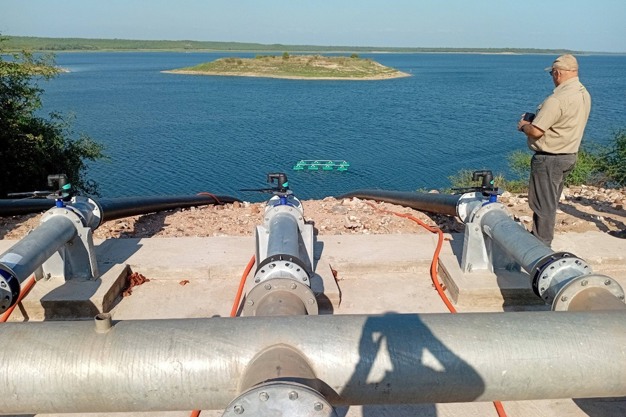 Tertius Strauss on the banks of the Massingir Dam, Gaza Province, Mozambique
Tertius Strauss on the banks of the Massingir Dam, Gaza Province, Mozambique
The interest in growing citrus in Mozambique is high: he reckons that in two years, there will be others joining them in the endeavour.
"On all of the issues that South African farmers struggle with in terms of trying to balance their returns, we've got a massive advantage. We're trying to convert the fact that we lease the land in Mozambique, so we don't have the investment cost of new land. We have a labour force that is committed to working although untrained, but significantly more cost-effective than South Africa. Our electricity costs and our water costs are cheaper.
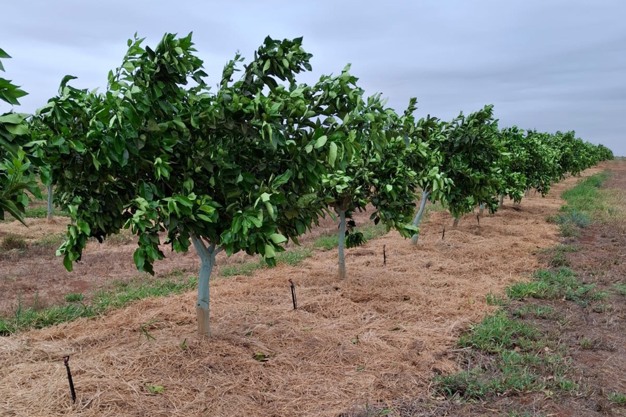 Verdant Citrus has the advantage of a very early season in the Southern African window
Verdant Citrus has the advantage of a very early season in the Southern African window
Elephants and politics part of the adventure
There was no commercial activity in the area when the bush was cleared for citrus orchards. North of the dam lies the Limpopo National Park, where elephants live and they can smell citrus a long way off – normal fences mean little to them.
"We just have to be proactive and patrol the farm lines at night and try to discourage the elephants away. We're trying to develop an early warning system so that the Limpopo park rangers can come and push the elephants back across the river. But anyway," he says, "it's part of the adventure."
Political instability since last year's contested general elections and an active insurgency 2,000km to the north cast a pall over the country's prospects, but Strauss, a South African, takes it in his stride. "I have to be honest with you: how stable is South Africa? And so that's our shared conundrum. We are operating in Africa but there are enough building blocks here to indicate that this will be a stable environment going forward."
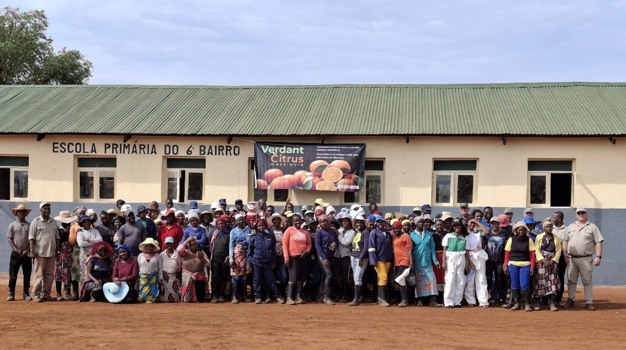 "The experience has been all-consuming and multi-layered with great people and awesome potential."
"The experience has been all-consuming and multi-layered with great people and awesome potential."
Bilateral cooperation on plant protection
Mozambique's climate lends itself to subtropical fruit production and in backyards and homesteads across the country, there are possibly millions of citrus trees. Bilateral phytosanitary regulations are catching up with the formal establishment of citrus blocks in Mozambique.
The two countries' national plant protection organizations are in the process of regularizing the movement of citrus between them.
"We're building a really interesting legacy project here. We've got a number of the big South African growers that are looking around in our area for opportunities." Strauss lives in Massingir, a tiny African village, along with the head of operations Hennie Prinsloo. "He is the backbone of the team, together with several very professional Mozambiquan finance and HR people. They understand that giving up urban comforts for the gratification of making a palpable difference to a rural community makes it worthwhile."
Last year they rebuilt the local school, although community expectations need to be managed to clearly set out that a profit-making enterprise is the principal focus.
"You come to Massingir for a day, and you can write a book. Come here for a week, and you can write a chapter. Come for a month, you could probably write a paragraph. And when you're here for three years, you don't know where to start," he observes, "The experience has been all-consuming and multi-layered with great people and awesome potential."
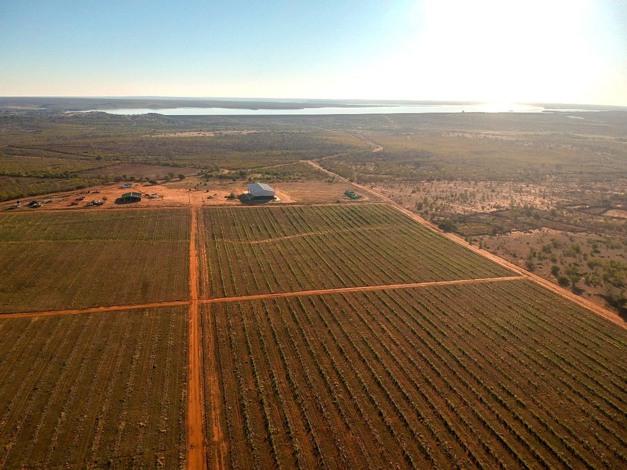 Massingir Dam in the distance
Massingir Dam in the distance
For more information:  Tertius Strauss
Tertius Strauss
Verdant Citrus Massingir
Tel: +258 86 845 1993
https://www.verdant-orchards.com/
